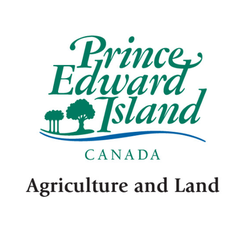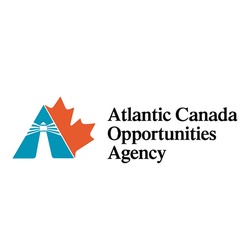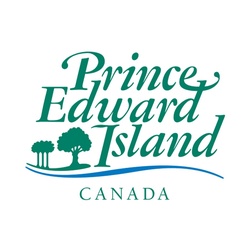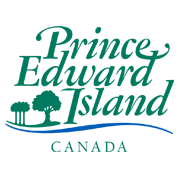
Island Community Food Security Program
At a glance
- Maximum amount : 10,000 $
- Closing date : May 15, 2025
- Agriculture, forestry, fishing and hunting
- Educational services
- Health care and social assistance
- Other services (except public administration)
- Public administration
- Prince Edward Island
- All legal structures
- All revenue ranges
- All organization sizes
- All groups
Overview
Funding of up to $10,000 to cover 100% of the costs of projects that support Prince Edward Island residents in obtaining safe, culturally acceptable, nutritionally adequate diets through a sustainable, local food system that maximizes community self-relia
Activities funded
Eligibility
Eligibility for this grant is determined based on the type of organization seeking funding and their legal capacity to enter agreements.
- The applicant must be a Mi’kmaq First Nations group, other Indigenous group, or a non-profit organization with a registered charity number, business number, or incorporated number.
- Agriculture industry organizations, clubs, associations, community-based coalitions, networks, municipal governments, schools, and early childhood centres are eligible.
- Applicants must have the capacity to enter into a legal agreement to receive funding, which includes having a charitable organization number or a provincial incorporation number.
- Projects initiated by individuals not affiliated with an organization are not eligible.
- Collaborative projects must include a letter of support from all partnering organizations involved in the application.
Who is eligible?
The Island Community Food Security Program is open to the following eligible recipients:- Mi’kmaq First Nations and other Indigenous groups.- Non-profit organizations with a registered charity number, business number, and/or incorporated number.- Agriculture industry organizations, clubs, and associations.- Community-based coalitions, networks, municipal governments, schools, and early childhood centres.It is important to note that eligible recipients must have the capacity to enter into a legal agreement to receive funding, meaning they should have a charitable organization number or a provincial incorporation number. Projects submitted by individuals not affiliated with an organization are not eligible. Additionally, if multiple groups collaborate on a project application, a letter of support from the partnering organizations should be included.Who is not eligible
This grant excludes certain companies and industries based on their status or primary activities. The restrictions ensure that funds support projects aligned with community food security and related objectives.
- Individuals not affiliated with an organization are not eligible.
- Projects that involve for-profit activities or fundraising events, including contests and prize money.
- Companies or organizations primarily focused on aquaponic food production or aquaculture, seaweed, fish, and seafood production and processing.
- Entities planning capital and infrastructure projects, as well as those incurring normal operating costs.
- Projects aimed at development and enforcement of regulations or those providing tax credits or rebates.
- Industries conducting research activities, except for Community Needs Assessment.
Eligible expenses
The Island Community Food Security Program supports activities aimed at enhancing local food systems and community food security. Eligible projects include educational initiatives, community collaboration, and infrastructure development for sustainable food practices.
- Healthy food education.
- Implementing food literacy training for foodservices and/or procurement staff.
- Developing a sustainable seasonal lunch menu for schools or early childhood centres using primarily local ingredients.
- Developing and piloting food literacy workshops or course modules.
- Establishing and maintaining community/school gardens, greenhouses, or indoor gardens, including the purchase of seeds and other eligible costs.
- Hosting community meals.
- Organizational events involving meals to promote local food.
- Purchasing materials, supplies, and small equipment.
- Covering training delivery costs such as room rental and training supplies.
- Paying professional fees directly related to the project.
- Conducting promotion and marketing initiatives.
- Funding in-province travel related to project activities.
- Renting facilities not already owned by participating organizations.
- Addressing other reasonable project-related expenses as approved by the program committee.
Selection criteria
There are evaluation and selection criteria for this grant. The evaluation process is based on specific criteria to assess the eligibility and quality of applications.
- Relevance of the project to the grant objectives
- Technical feasibility and innovation of the proposed project
- Expected impact on the Canadian economy or sector
- Quality of the project plan and budget
- Applicant's track record and capacity to execute the project
How to apply
Prepare Application
- Ensure eligibility by reviewing program guidelines and criteria.
- Organize all necessary documentation including a detailed project proposal and a budget plan.
- Acquire letters of support if collaborating with other organizations.
Submit Application via Email
- Compose an email including all required documents as attachments.
- Use "Island Community Food Security Program" as the subject line.
- Send your email to foodsecurity@gov.pe.ca.
Submit Application via Regular Mail (Optional)
- Print all required documents and ensure all forms are signed.
- Mail your application to: PEI Department of Agriculture, 11 Kent Street, PO Box 2000, Charlottetown PE C1A 7N8.
Additional information
Here are additional relevant details for this grant:
- Recipients are required to submit a report on the project and its results in terms of project objectives.
- Projects may be funded below the maximum contribution rate upon assessment and availability of funding.
- Projects that have demonstrable links to increasing public trust may be eligible for additional funding.
- An evaluation of the program is planned to ensure objectives are met, and program metrics are collected and reported on an ongoing basis.
Contacts
Frequently Asked Questions about the Island Community Food Security Program Program
What is the Island Community Food Security Program?
How much funding can be received?
What expenses are eligible under Island Community Food Security Program?
What is the deadline to apply?
Is the Island Community Food Security Program a grant, loan, or tax credit?
Who are the financial supporters of the Island Community Food Security Program?
Who is eligible for the Island Community Food Security Program program?
Who can I contact for more information about the Island Community Food Security Program?
Where is the Island Community Food Security Program available?
More programs like this

Atlantic Innovation Fund — Private Sector Businesses
Atlantic Canada Opportunities Agency (ACOA)
Electric Vehicle Incentive
Government of Prince Edward Island
Fund Supported Charities
BC Government Employees Community Services Fund Trust
Grow the Herd Pilot Program
Government of Prince Edward Island
Micro-Loan Program
Government of Prince Edward Island
E-tools for Exporting
LearnSphere
Alternative Land Use Services Program
Government of Prince Edward Island
Future Farmer Program
Government of Prince Edward Island
Future Fisher Program
Government of Prince Edward Island